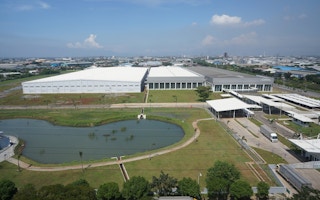As the world’s water resources become increasingly scarce and more at risk to industrial and domestic pollution, the United Nations has identified the reduction of untreated wastewater as an area of focus in the post-2015 development agenda following the Millennium Development Goals.
To continue reading, subscribe to Eco‑Business.
There's something for everyone. We offer a range of subscription plans.
- Access our stories and receive our Insights Weekly newsletter with the free EB Member plan.
- Unlock unlimited access to our content and archive with EB Circle.
- Publish your content with EB Premium.
One company that has taken significant strides to put water sustainability goals ahead of the post-2015 roadmap is multinational beauty care products maker L’Oreal, which has committed to reduce 60 per cent of its water footprint by 2020, including how wastewater is discharged from all of its 43 factories worldwide, as outlined in its ‘Sharing Beauty with All’ sustainability blueprint.
As part of a company-wide strategy to improve every aspect of its business operations through sustainable innovation, L’Oreal has built a sustainable wastewater treatment plant (WWTP) at its largest factory globally - located at the Jababeka industrial park in west Java, 60 kilometres east of Jakarta, Indonesia - that not only meets environmental standards, but also lowers operational carbon, water and waste footprints.
At a recent media tour, the firm explained how it enlisted water treatment company Veolia Water Technologies to design an onsite wastewater treatment plant which is easy to operate and maintain within in its 66,000 square metre factory.
Read the rest of the story in our inaugural Eco-Business magazine here.










